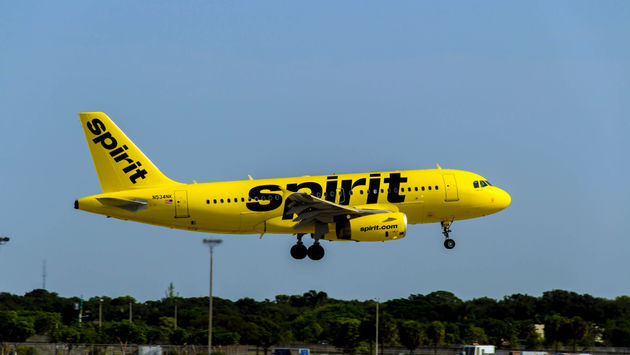Frontier, Spirit Merger has pluses and minuses

When a combination of staffing shortages and weather issues hit Spirit Airlines last summer, the carrier found itself in the unenviable position of being forced to delay and cancel thousands of flights at the height of the travel rebound.
Spirit called it “operational issues,” but truth be told as a low-cost airline Spirit simply didn’t have enough planes and routes to move its pilots and flight attendants around and get them into place – nor did it have the capacity to handle the heavy volume of rebooking passengers.
That shouldn’t be a problem any longer.
Spirit is being merged into Frontier Airlines as the two carriers announced in a blockbuster deal on Monday worth a total of $6.6 billion in cash and stocks. The merger, if it passes regulatory approval, will created the fifth-largest airline in the United States behind the Big Four of Delta, American, United and Southwest.
It would also add 300 new routes to the merged company, likely, or hopefully, eliminating the operational issues of getting staff into place when needed.
That’s just one of the pluses for the Frontier/Spirit merger.
Another plus? The potential combined airline is groundbreaking in the aviation industry. As has been the previous standard, larger airlines usually scoop up smaller, low-budget airlines and fold them into their system. Those cheap fares eventually end up disappearing.
But this union will create what executives at both carriers believe will be the first true national low-budget airline in the U.S., although Southwest Airlines might differ with that opinion.
“This merger is completely different than everything else you’ve seen in the industry for the last 20 years,” Frontier CEO Barry Biffle said on a conference call. “We are not interested in constraining capacity and raising prices.”
Indeed, both Frontier and Spirit are known for their ridiculously low fares.
Said Spirit President and CEO Ted Christie in a statement: “This transaction is centered around creating an aggressive ultra-low fare competitor to serve our guests even better, expand career opportunities for our team members and increase competitive pressure, resulting in more consumer-friendly fares for the flying public.”
But there are minuses as well.
Longtime airline expert Bill McGee, an advisor for Consumer Reports on the aviation industry, said precedent has been set with merging airlines when it comes to proclamations that fares will be, or remain, low.
“That’s what they always say,” McGee told National Public Radio. “That’s what merging airlines have always claimed. And as we’ve seen, consolidation has not been good for consumers, and it’s only reduced their choices.”
But even if fares remain favorable for Frontier/Spirit, passengers have complained that the airlines’ ancillary fees cancel out any savings on bookings. The carriers have been known to charge fees for checking in at the airport instead of online, seat selection, checked bags, even in-flight snacks and beverages.
That’s a problem says Stephen Grabowski, CEO and co-founder of Gordian Software, the company that provides software support for more than 1,200 airlines and online travel businesses such as Princeline and Hopper.
“The combination of Spirit and Frontier only highlights the pain point passengers have juggling paid add-on options like extra luggage, seat selections and boarding priority,” Grabowski said. “Low-cost airlines generate an enormous amount of their revenue – sometimes up to 50 percent – from ancillary products like paid seat selection and checked luggage. It almost makes sense to think about the flight ticket as the add-on product to these upgrades, especially if you look at where the profit dollars are generated.”
Indeed, according to research done by USA Today, Frontier and Spirit brought in a combined $465 million in baggage fees in the first six months of 2021, the last time figures were available. That would rank the merged company second only to American Airlines’ $520 million in baggage fees collected.
And to further Grabowski’s point, USA Today noted that Spirit received an average of $46.16 per passenger in airfare in 2021 – and $58.64 per passenger in non-ticket revenue.
“So on the one hand, they bring lower fares. But on the other hand, these two carriers are very problematic from a customer service standpoint,” McGee said.
McGee is also suspect of claims by Frontier and Spirit that the combined airline will create 10,000 new jobs by 2026.
“I’ll put it this way — there has never been a merger or an acquisition of an airline in the United States that has not led to layoffs,” he said. “There is always, always fallout on the labor side. Always.”
